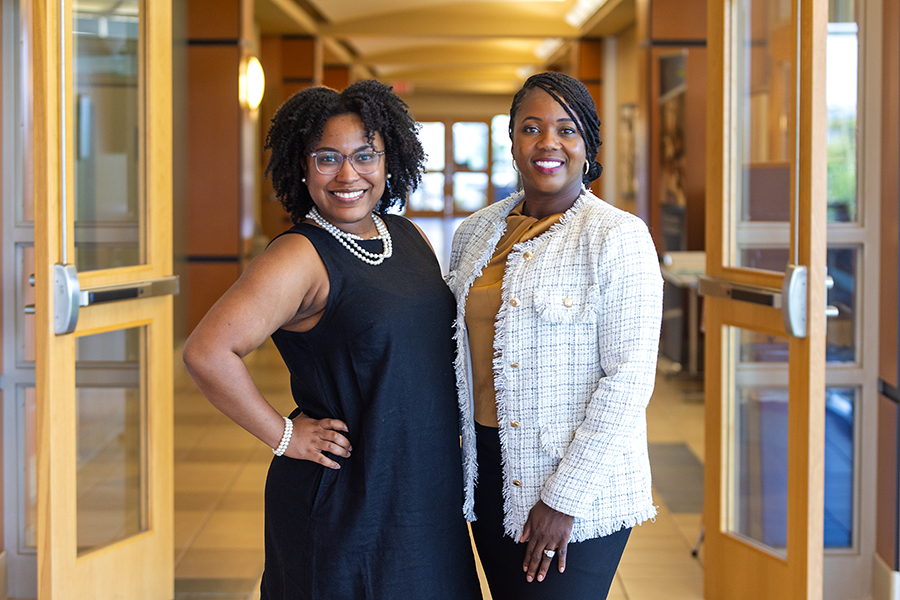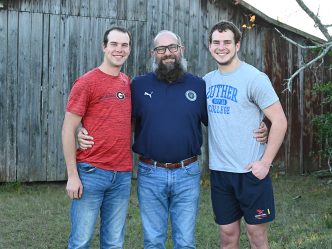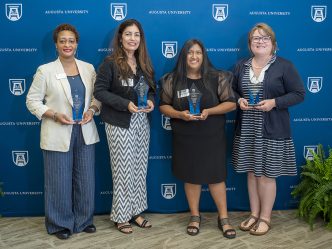A new collaboration between Augusta University’s College of Education and Human Development and School of Public Health has resulted in a $2.4 million grant from the Health Resources and Services Administration to increase behavioral health services for high-need, high-demand areas serving children, adolescents and transitional-aged youth living in Augusta.
The project titled “The Targeted Resources and Advanced Instruction for New Behavioral Health Professionals” is led by principal investigator Alicia Becton, PhD, and co-principal investigator Raven Cokley, PhD. They are joined by Richard Deaner, PhD, who will serve as clinical coordinator for the grant; Jordon Beasley, PhD, the project’s clinical trainer; and Kathleen Cleveland-Kennedy, who will serve as project coordinator, all from COEHD. From the School of Public Health, Katherine Hatcher serves as a grant operations manager and Ashwini Tiwari Pandey, PhD, will serve as the program evaluator.
“When we talk about integrated or interprofessional behavioral health experiences, that’s bringing everyone to the table to ensure that we’re providing holistic services. This grant represents a spectrum of sectors, including medical, behavioral health, mental health, public health, nursing and social work,” said Becton, chair of the Department of Research, Counseling, and Curriculum in COEHD and a licensed professional counselor. “Our students will now have an opportunity to work with professionals and fellow students from a range of health care backgrounds, and, in turn, we will expand the access of resources for the individuals in our area.”
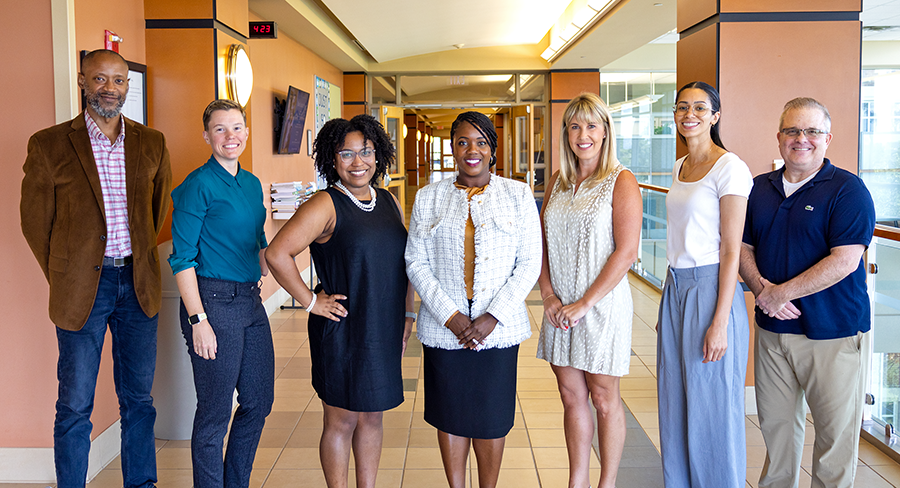
The team has four primary objectives:
- Increase the number of new or expanded community partnerships with experiential training sites in high-need and high-demand areas
- Promote collaborative training by using team-based models of care to integrate behavioral health care into interprofessional primary care settings
- Recruit, train and retain students interested in working with children, adolescents and young adults
- Recruit, develop and expand the capacity to train clinical supervisors to support and mentor behavioral health trainees
“The goal isn’t just to train students during the grant period but to build a lasting pipeline of behavioral health professionals committed to serving Georgia’s youth,” Becton said. “The hope is that these graduates will stay and work in Georgia, especially in underserved communities.”
To achieve those goals over the next four years, the team has partnered with Community Service Board of East Central Georgia through Serenity Behavioral Health Systems, Wellstar MCG Health Pediatrics, Christ Community and Neighborhood Improvement Project, Inc. from Medical Associates Plus.
“I have dedicated my counseling practice and research agenda to making the world safer for adolescents, teens and young people,” Cokley said. “I am so excited about the possibilities and opportunities that this grant will provide our counselors-in-training who will inevitably do the same for their clients, families and communities.”
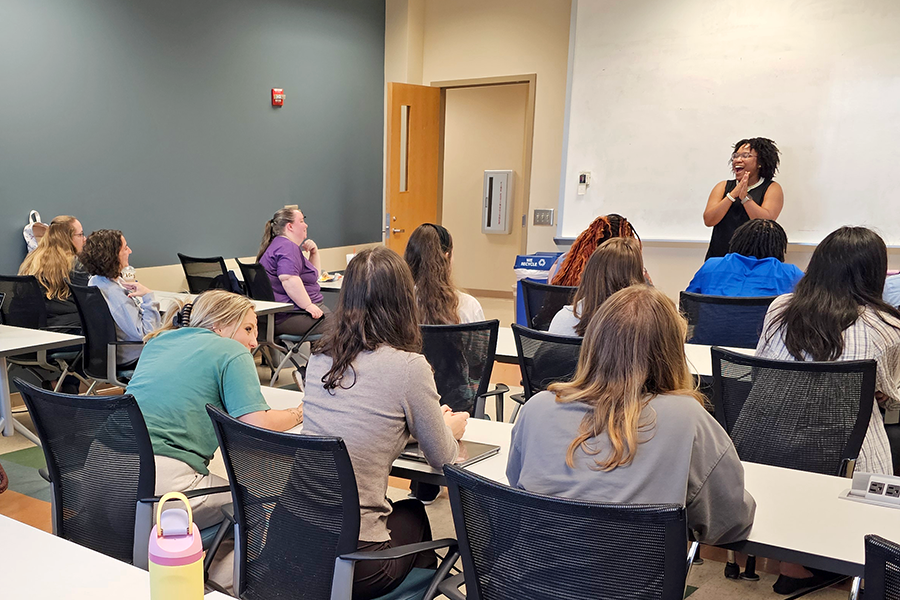
According to the 2021 National Survey on Drug Use and Health state estimates conducted by the Substance Abuse and Mental Health Services Administration, or SAMHSA, Georgia residents struggle with significant mental health and substance use challenges, but the state faces a critical shortage of mental health professionals, particularly in rural and underserved areas.
The report revealed that a significant number of Georgia’s residents struggle with mental health issues. Among people 18 and older, more than 22% reported having a mental illness in the past year. Specifically, close to 6% had a serious mental illness, 8% experienced a major depressive episode and 5% had serious thoughts of suicide. Additionally, 16% of those 12 and older who used drugs or alcohol at some point in their lives had a substance use disorder in the past year. And, while over 18% of those 12 or older indicated they needed substance use treatment in the past year, over 78% did not receive it.
“My entire career has been dedicated to helping children and adolescents, and I’m excited to have the opportunity to serve the next wave of counselors as they take on the tasks of increasing access to mental and behavioral health in our local communities,” said Cleveland-Kennedy.
“This grant really reflects the strength of collaboration across Augusta University,” said Hatcher. “Together, we’re combining hands-on clinical training with rigorous public health methods to address Georgia’s mental health workforce needs.”
Georgia’s mental health and substance use challenges are particularly prevalent among children, adolescents and young adults. In the past year, close to 33% of those aged 18-25 reported having some form of mental illness, with 11% reporting having a serious mental illness. Among the same age group, close to 18% had a major depressive episode and just over 13% had serious thoughts of suicide. Similarly, 23% had a substance use disorder. In the 12-17 age group, over 17% had a major depressive episode, 12% had serious thoughts of suicide and 9% had a substance use disorder. Notably, over 12% of this age group needed substance use treatment, but 58% did not receive it. Among those aged 18-25, nearly a quarter (24%) needed substance use treatment, but nearly 85% did not receive it.
Despite this significant need, Georgia lags behind the rest of the nation in access to mental health providers. Statewide, there are roughly 188 mental health providers per 100,000 residents, compared to the national average of 311 per 100,000 persons. For addiction/substance use providers, Georgia has just under eight providers per 100,000 people compared to 28.3 per 100,000 nationally. Notably, 150 out of Georgia’s 159 counties are designated as mental health professional shortage areas.
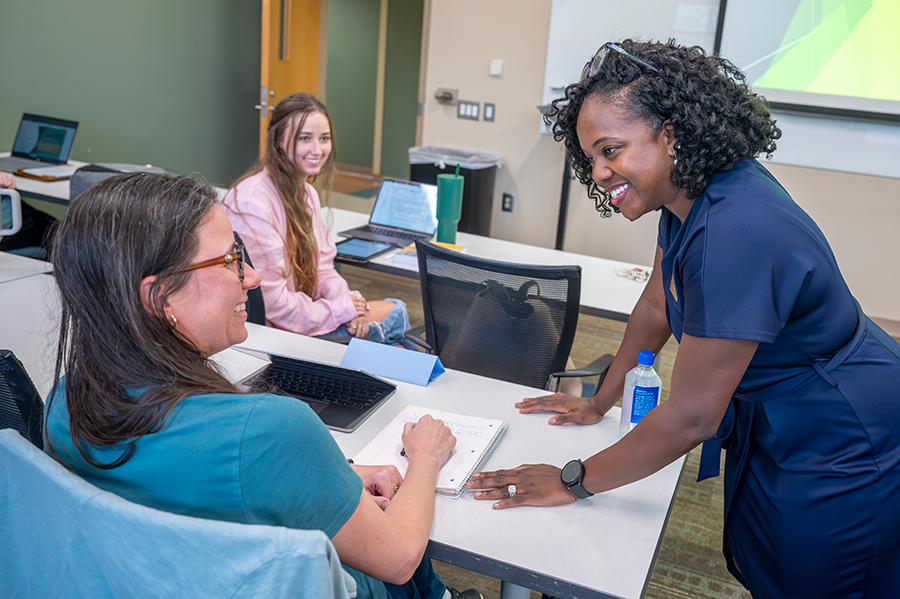
“Our college is immensely proud of this grant award,” said Judi Wilson, EdD, dean of the College of Education and Human Development. “We are especially pleased with the collaboration with the School of Public Health team. We look forward to this partnership growing as we continue to find innovative ways to partner together to make the world a better place.”
“This is such an exciting opportunity for the School of Public Health to partner with the College of Education and Human Development,” said Teresa Waters, PhD, dean of the School of Public Health. “We have shared interests in addressing Georgia’s mental health workforce needs and complementary skills that can make a difference in our community. This is really a win-win situation: for our colleges, for Augusta University, and especially for the young people of our region and our state.”
 Augusta University
Augusta University
